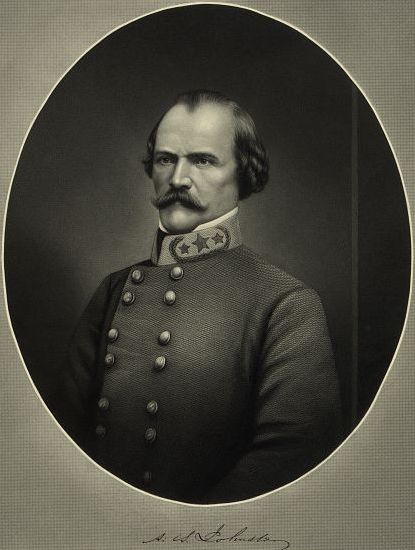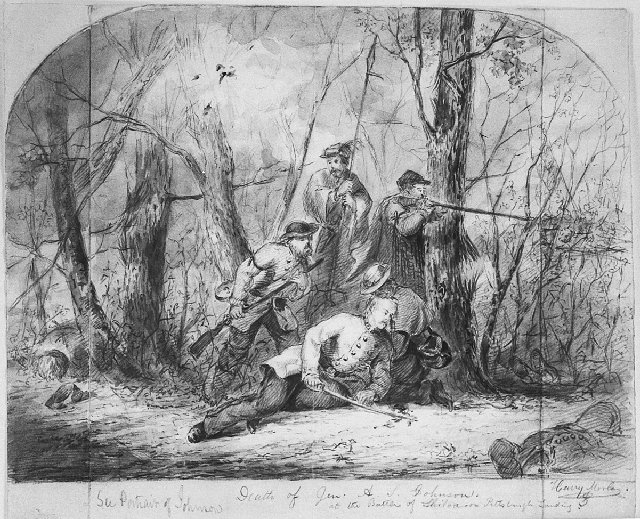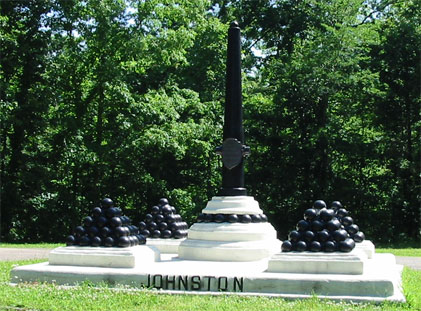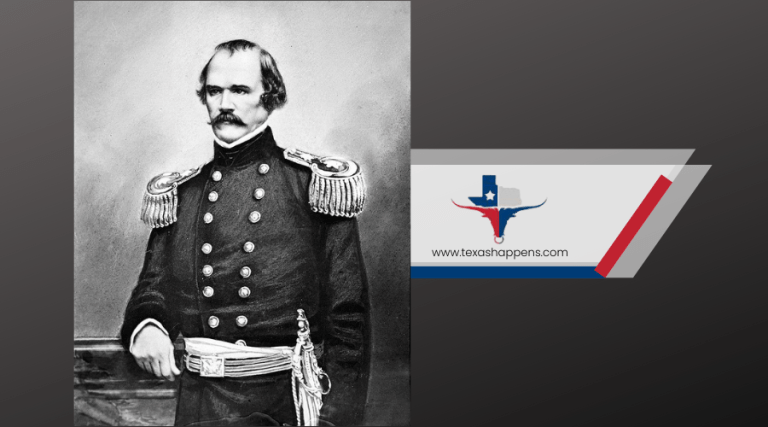Albert Sidney Johnston was one of the most prominent and influential Confederate generals during the American Civil War. His strategic decisions and leadership style significantly impacted the course of the war, particularly in the Western Theater.
Albert Sidney Johnston was born on February 2, 1803, in Washington, Kentucky. His early life was marked by a robust education, culminating in his graduation from the United States Military Academy at West Point in 1826. Johnston’s early military career was distinguished by service in various capacities, including the Black Hawk War and the Mexican-American War. His experiences in these conflicts honed his skills and prepared him for the significant role he would play in the Civil War.
Johnston’s pre-Civil War career also included a stint as Secretary of War for the Republic of Texas and service in the United States Army, where he was stationed in various posts across the western frontier. These experiences provided him with a deep understanding of logistics, leadership, and the complexities of military strategy, which he later applied during the Civil War.
Role in the Confederate Army

When the Civil War broke out in 1861, Johnston was serving as a brigadier general in the United States Army, commanding the Department of the Pacific. Despite his strong ties to the Union, Johnston chose to resign his commission and offer his services to the Confederacy, driven by his loyalty to his home state of Texas. Johnston was quickly appointed as a full general in the Confederate Army, a testament to the high regard in which he was held by Confederate President Jefferson Davis.
Davis considered Johnston one of his most capable commanders, entrusting him with the crucial Western Department, which spanned a vast and strategically vital area from the Appalachians to the Mississippi River.
Strategic Vision and Challenges
Johnston faced numerous challenges in the Western Theater, including limited resources, vast territories to defend, and internal political disputes. Despite these difficulties, he implemented a defensive strategy aimed at holding key positions and preventing Union forces from penetrating deeper into Confederate territory.
One of Johnston’s significant strategic decisions was the establishment of a defensive line stretching from the Mississippi River to the Cumberland Gap. This line included strongholds such as Fort Henry and Fort Donelson, which were crucial in controlling the rivers that served as vital supply and transportation routes.
Battle of Shiloh

Johnston’s most notable and consequential engagement was the Battle of Shiloh, fought in April 1862. Recognizing the growing threat posed by Union forces under General Ulysses S. Grant, Johnston decided to launch a surprise attack on Grant’s army encamped at Pittsburg Landing, Tennessee. Johnston believed that a decisive victory at Shiloh could halt the Union advance and shift the momentum in favor of the Confederacy.
On the morning of April 6, 1862, Johnston’s forces launched a ferocious assault on the unprepared Union troops, initially achieving significant success. However, during the heat of battle, Johnston was struck by a bullet and bled to death on the battlefield. His death marked a turning point in the battle and led to a loss of cohesion and momentum among Confederate forces.
Impact on Confederate Strategies
Johnston’s death had profound implications for the Confederate war effort. His strategic vision and leadership had been instrumental in shaping the Confederate defense of the Western Theater. Without him, the Confederacy struggled to maintain a cohesive and effective strategy in the region.
One of the immediate impacts of Johnston’s death was the loss of momentum at Shiloh. While the Confederates had initially gained the upper hand, the lack of strong leadership in the wake of Johnston’s death allowed Union forces to regroup and ultimately secure a victory. This battle marked a turning point in the Western Theater, as it gave the Union control over a critical area and set the stage for further advances into the Confederacy.
In a broader sense, Johnston’s death deprived the Confederacy of a commander who possessed a rare combination of strategic insight, experience, and the ability to inspire his troops. His absence was felt keenly in subsequent campaigns, where the lack of coordinated and decisive leadership often hampered Confederate efforts.
The Western Theater Post-Johnston
After Johnston’s death, the Confederate strategy in the Western Theater became increasingly fragmented. General P.G.T. Beauregard, who succeeded Johnston, struggled to maintain the cohesion and effectiveness of Johnston’s forces. The lack of unified leadership and strategic direction contributed to a series of setbacks for the Confederacy in the Western Theater.
The loss of key territories such as Fort Donelson and Fort Henry, followed by the fall of Corinth, Mississippi, demonstrated the challenges faced by Confederate forces in the wake of Johnston’s death. The Union’s control over these strategic locations allowed them to launch further offensives into the heart of the Confederacy, ultimately leading to the capture of Vicksburg and control of the Mississippi River.
Long-term Strategic Implications

Johnston’s death had long-term strategic implications for the Confederacy. His absence was felt not only in the immediate aftermath of Shiloh but throughout the remaining years of the war. The Confederate high command struggled to find a commander who could match Johnston’s strategic vision and leadership qualities.
The Union’s success in the Western Theater, facilitated in part by Johnston’s death, allowed them to implement a strategy of divide and conquer. By controlling the Mississippi River and key railroads, the Union was able to split the Confederacy and disrupt their supply lines. This strategy, combined with the relentless pressure applied by Union forces in the East and West, ultimately led to the Confederacy’s defeat.
Conclusion
Albert Sidney Johnston remains a compelling figure in the history of the American Civil War. His contributions to Confederate strategies, particularly in the Western Theater, had a lasting impact on the course of the conflict. Despite his untimely death at the Battle of Shiloh, Johnston’s legacy endures as a testament to the complexities and challenges of military leadership during one of the most tumultuous periods in American history.
Johnston’s life and career offer valuable insights into the nature of leadership, the intricacies of military strategy, and the profound impact of individual commanders on the outcomes of wars. While his potential was ultimately unrealized, Johnston’s story serves as a reminder of the critical role that strategic vision and leadership play in shaping the course of history.


